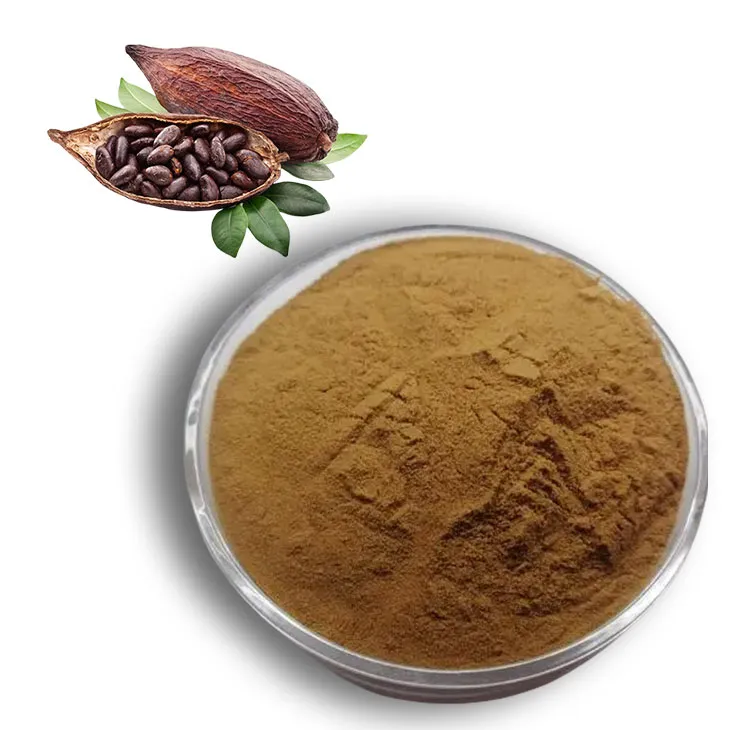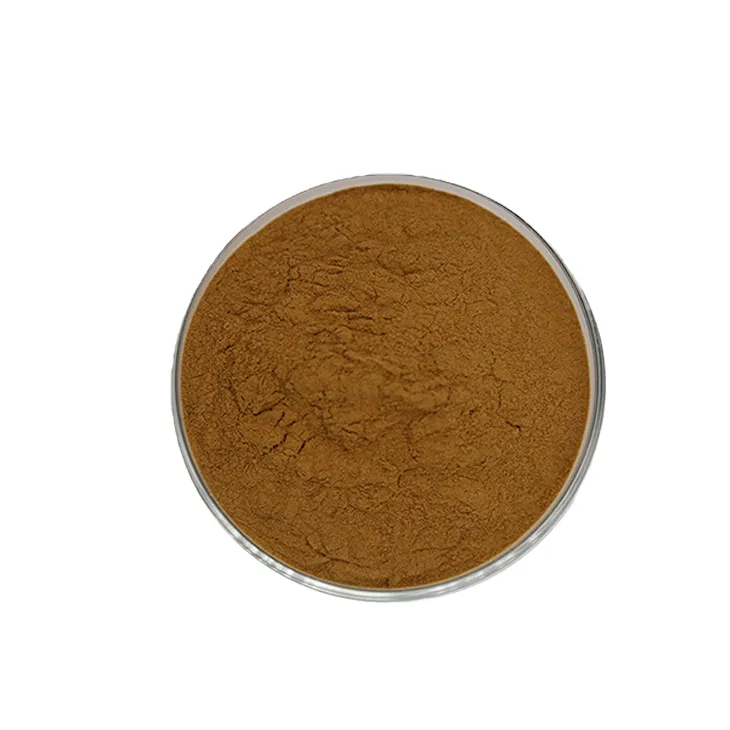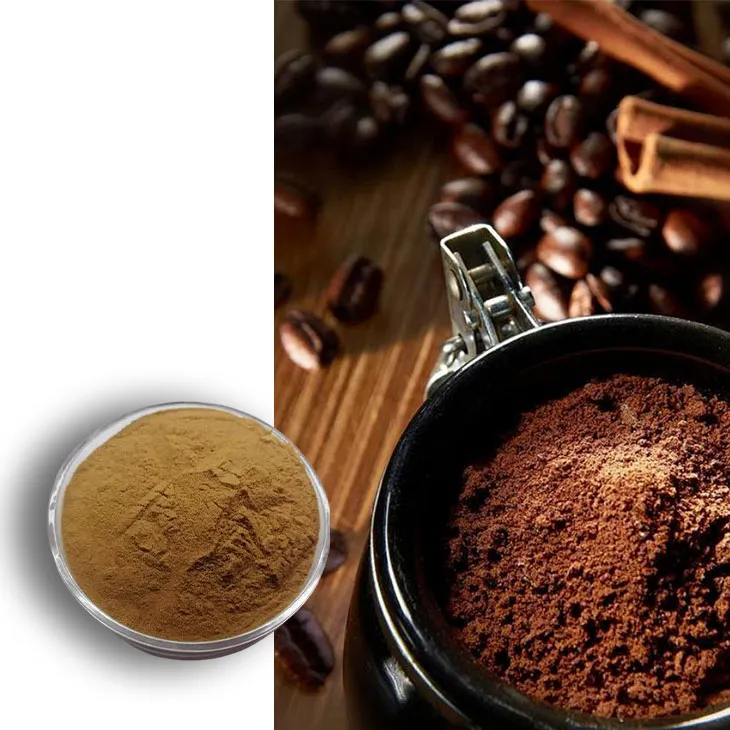- 0086-571-85302990
- sales@greenskybio.com
Is cocoa extract beneficial for diabetes? Are these all safe and applicable for diabetic patients?
2024-11-12

1. Introduction
Diabetes is a chronic metabolic disorder that affects millions of people worldwide. Managing blood sugar levels, improving insulin sensitivity, and maintaining overall health are crucial aspects of diabetes care. In recent years, there has been growing interest in the potential benefits of natural compounds, such as Cocoa Extract, for diabetes. Cocoa, the main ingredient in chocolate, contains a variety of bioactive compounds that may have positive effects on health. However, it is essential to determine whether these effects are relevant to diabetes and if they are safe for all diabetic patients. This article will comprehensively analyze the scientific research on Cocoa Extract's impact on diabetes from multiple angles.

2. Cocoa Extract: Composition and Bioactive Compounds
Cocoa extract is rich in several bioactive compounds that contribute to its potential health benefits. Flavonoids are one of the main components, particularly epicatechin and its derivatives. These flavonoids are known for their antioxidant properties. They can scavenge free radicals in the body, which may reduce oxidative stress. Oxidative stress is often elevated in diabetic patients and is associated with various complications. Another important group of compounds in cocoa extract are methylxanthines, such as theobromine. These compounds may have effects on metabolism and blood flow.

3. Effects of Cocoa Extract on Blood Sugar Regulation
3.1 In vitro and Animal Studies
Several in vitro and animal studies have suggested potential benefits of cocoa extract on blood sugar regulation. In cell culture studies, cocoa flavonoids have been shown to affect glucose uptake in cells. For example, some flavonoids may enhance the function of glucose transporters, which are proteins responsible for moving glucose into cells. In animal models of diabetes, cocoa extract supplementation has been associated with improved blood glucose levels. These effects may be mediated through multiple mechanisms, including modulation of insulin signaling pathways and reduction of hepatic glucose production.
3.2 Human Studies
Human studies on the effects of cocoa extract on blood sugar regulation have yielded mixed results. Some small - scale clinical trials have reported a reduction in fasting blood glucose levels in diabetic patients after cocoa extract consumption. However, other studies have not found significant effects. The differences in results may be due to factors such as the dose of cocoa extract used, the duration of the study, and the characteristics of the study population. For example, a study that included patients with well - controlled type 2 diabetes may not observe significant changes in blood sugar levels compared to a study with newly diagnosed patients.

4. Impact on Insulin Sensitivity
4.1 Molecular Mechanisms
Cocoa extract may improve insulin sensitivity through various molecular mechanisms. One proposed mechanism is the activation of AMP - activated protein kinase (AMPK). AMPK is a key regulator of cellular energy metabolism. When activated, it can increase glucose uptake in cells, promote fatty acid oxidation, and improve insulin sensitivity. Cocoa flavonoids have been shown to activate AMPK in some experimental models. Another mechanism may involve the modulation of inflammatory pathways. Chronic inflammation is often associated with insulin resistance in diabetes. Cocoa extract's anti - inflammatory properties may help to reduce inflammation and thereby improve insulin sensitivity.
4.2 Clinical Evidence
Clinical evidence regarding the impact of cocoa extract on insulin sensitivity is also inconsistent. Some studies have reported an improvement in insulin sensitivity as measured by techniques such as the insulin tolerance test or the homeostasis model assessment of insulin resistance (HOMA - IR). However, other studies have not replicated these findings. The variability in results may be related to differences in study design, including the type of diabetes (type 1 or type 2), the baseline insulin sensitivity of the participants, and the composition and dose of the cocoa extract used.

5. Cocoa Extract and Overall Health in Diabetes
5.1 Cardiovascular Health
Diabetes is associated with an increased risk of cardiovascular diseases. Cocoa extract may have beneficial effects on cardiovascular health in diabetic patients. The flavonoids in cocoa can improve endothelial function, which is crucial for maintaining normal blood vessel dilation and blood flow. By improving endothelial function, cocoa extract may help to reduce blood pressure, which is often elevated in diabetic patients. Additionally, some studies have suggested that cocoa extract may have anti - platelet and anti - atherogenic properties, which can further reduce the risk of cardiovascular complications in diabetes.
5.2 Kidney Health
In diabetic patients, kidney damage is a common complication. There is some evidence that cocoa extract may have a protective effect on the kidneys. The antioxidant and anti - inflammatory properties of cocoa extract may help to reduce oxidative stress and inflammation in the kidneys, which are involved in the development of diabetic nephropathy. However, more research is needed to fully understand the potential benefits of cocoa extract for kidney health in diabetes.
6. Safety Considerations for Diabetic Patients
6.1 Sugar and Calorie Content
One of the main concerns when considering cocoa extract for diabetic patients is the sugar and calorie content. Cocoa products, such as chocolate, often contain added sugars, which can significantly increase blood sugar levels. However, cocoa extract in its pure form without added sugars can be a different story. Diabetic patients should be cautious when choosing cocoa - based products and opt for those with low or no added sugars. For example, unsweetened cocoa powder may be a better option compared to milk chocolate, which typically has a high sugar content.
6.2 Interactions with Medications
Cocoa extract may interact with medications commonly used in diabetes treatment. For instance, the methylxanthines in cocoa extract may interact with drugs that affect blood pressure or heart rate. Diabetic patients taking medications such as beta - blockers or antihypertensive drugs should consult their healthcare providers before starting cocoa extract supplementation. Additionally, cocoa extract may also interact with some oral hypoglycemic agents, potentially affecting their efficacy or safety.
6.3 Allergic Reactions
Some individuals may be allergic to cocoa or its components. Allergic reactions can range from mild symptoms such as skin rashes and itching to more severe reactions like anaphylaxis. Diabetic patients with a known allergy to cocoa should avoid cocoa extract and cocoa - based products. It is important to note that even though cocoa allergy is relatively rare, it can be a serious concern for those affected.
7. Conclusion
In conclusion, cocoa extract contains bioactive compounds that may have potential benefits for diabetes, including effects on blood sugar regulation, insulin sensitivity, and overall health. However, the scientific evidence is not entirely conclusive, and more research is needed, especially large - scale, well - designed clinical trials. When considering the use of cocoa extract for diabetic patients, safety factors such as sugar and calorie content, interactions with medications, and allergic reactions must be carefully evaluated. Overall, cocoa extract may be a promising natural compound for diabetes management, but it should be used with caution and under the guidance of healthcare professionals.
FAQ:
Q1: What is cocoa extract?
Cocoa extract is a substance derived from cocoa beans. It contains various bioactive compounds such as flavonoids, which are known for their potential health - promoting properties.
Q2: How can cocoa extract affect blood sugar regulation in diabetes?
Some studies suggest that the flavonoids in cocoa extract may improve blood sugar regulation. They might enhance insulin sensitivity, which means cells can respond better to insulin and thus help in regulating blood glucose levels. However, more research is still needed to fully understand the mechanisms and the extent of its effect.
Q3: Is cocoa extract safe for type 1 diabetes patients?
While cocoa extract may have potential benefits, its safety for type 1 diabetes patients needs to be carefully considered. Type 1 diabetes is an autoimmune disease where the body doesn't produce insulin. Although cocoa extract may not directly interfere with the basic pathophysiology of type 1 diabetes, factors like added sugars in cocoa - containing products and potential interactions with medications need to be evaluated on an individual basis.
Q4: What about the safety of cocoa extract for type 2 diabetes patients?
For type 2 diabetes patients, cocoa extract may offer some benefits as it could potentially improve insulin sensitivity. However, many commercially available cocoa products may contain high amounts of fat and calories. So, if a type 2 diabetes patient wants to consume cocoa extract, they should choose products with low added sugars and fats to avoid negative impacts on blood sugar control and body weight.
Q5: Can cocoa extract replace diabetes medications?
No. Cocoa extract cannot replace diabetes medications. While it may have some beneficial effects on blood sugar regulation and overall health, it is not a substitute for the drugs prescribed by doctors. Diabetes medications are specifically designed to control blood sugar levels, and any changes in treatment should be made under the guidance of a healthcare professional.
Related literature
- The Role of Cocoa Flavonoids in Diabetes Management"
- "Cocoa Extract and Insulin Sensitivity: A Review of Current Research"
- "Safety and Efficacy of Cocoa - based Supplements in Diabetic Populations"
- ▶ Hesperidin
- ▶ citrus bioflavonoids
- ▶ plant extract
- ▶ lycopene
- ▶ Diosmin
- ▶ Grape seed extract
- ▶ Sea buckthorn Juice Powder
- ▶ Beetroot powder
- ▶ Hops Extract
- ▶ Artichoke Extract
- ▶ Reishi mushroom extract
- ▶ Astaxanthin
- ▶ Green Tea Extract
- ▶ Curcumin Extract
- ▶ Horse Chestnut Extract
- ▶ Other Problems
- ▶ Boswellia Serrata Extract
- ▶ Resveratrol Extract
- ▶ Marigold Extract
- ▶ Grape Leaf Extract
- ▶ blog3
-
High purity olive leaf extract
2024-11-12
-
Lavender oil extraction method
2024-11-12
-
100% organic virgin sea buckthorn fruit oil
2024-11-12
-
Lotus leaf extract powder factory in China
2024-11-12
-
China aged garlic extract supplier
2024-11-12
-
Deer antler extract powder manufacturer
2024-11-12
-
Saw palmetto extract vs whole herb
2024-11-12
-
Phellodendron Extract
2024-11-12
-
White mustard seed extract
2024-11-12
-
Saponin Extract
2024-11-12
-
Senna Leaf Extract
2024-11-12
-
Europen Bilberry Extract
2024-11-12
-
Boswellia Serrata Extract
2024-11-12
-
Tongkat Ali Extract Powder
2024-11-12
-
Chaste Berry Extract
2024-11-12
-
Sugarcane Extract
2024-11-12
-
Peppermint Extract Powder
2024-11-12





















